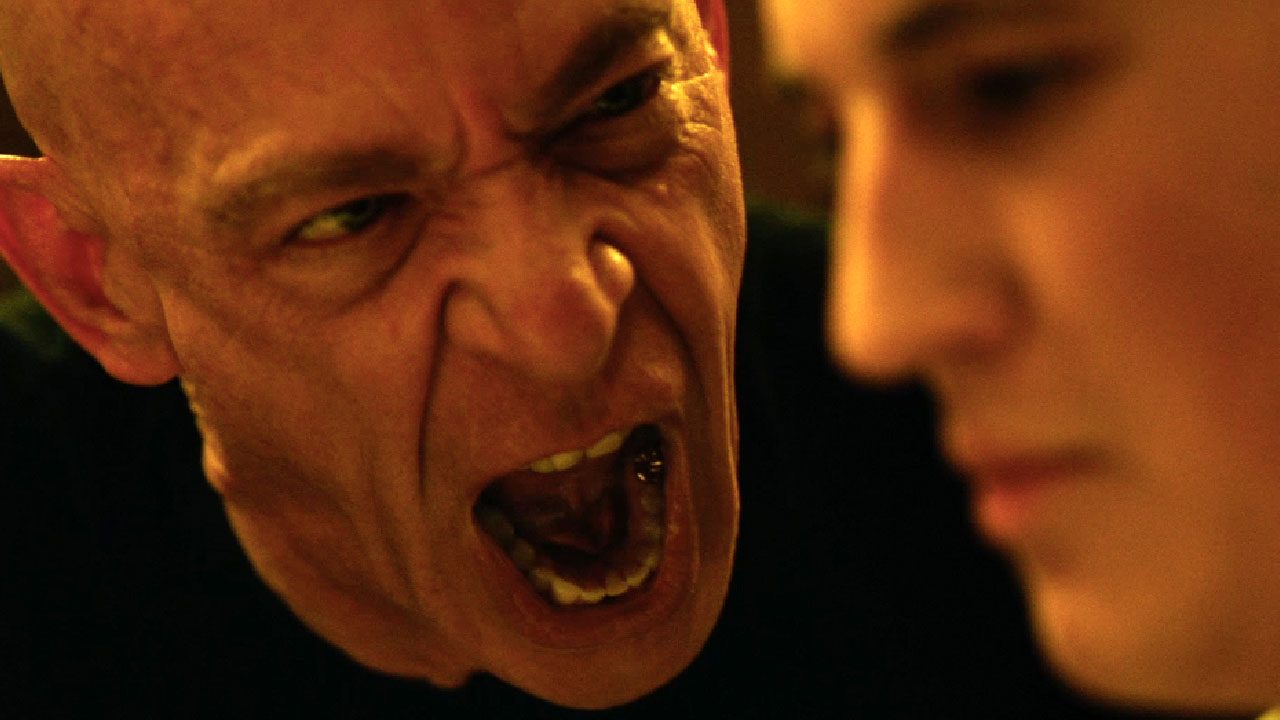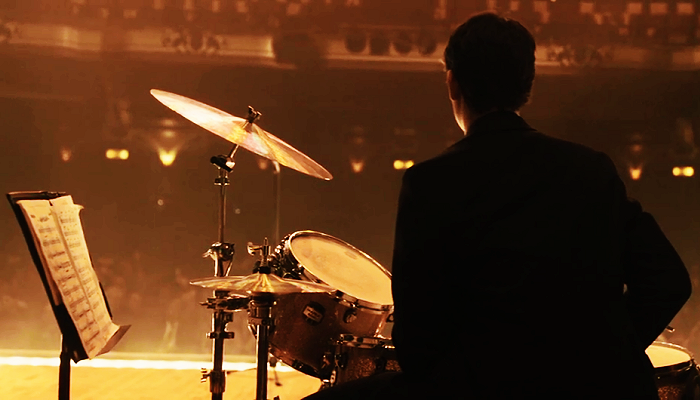
Welcome back to Scoring the Score! This week we will focus on music as a plot device through Director Damien Chazelle’s Whiplash (2014). An excellent film, Whiplash follows the story of Andrew Neiman, a young Jazz drummer, as he tries to make it to the top at his competitive music school. Unfortunately, when he finally places into the competitive upper Jazz class, he must face the demands for absolute perfection coming from his music instructor, Fletcher. The audience feels Andrew’s fear and stress as he desperately becomes focused solely on gaining Fletcher’s approval. This becomes unhealthy and life-threatening for Andrew as he goes down a path of self-destruction seeking perfection.
Being a film about the struggles of a Jazz musician, the music of the film is featured prominently and drives the film forward. Entire scenes are dedicated to filming music and the film’s sound mixing and editing captures the life of several classic Jazz tunes. When Andrew first enters studio band, we are introduced through the song Whiplash (Song link 1: Whiplash). When Chazelle films music scenes, he moves the camera around constantly to focus on the prominent instruments and rotates it around the band to give the music the liveliness that it would lose from not being live. This song specifically shows how competitive and serious this band is through the ensemble’s outstanding performance of a difficult song. The song Whiplash has a kind of urgency to it that captures the film perfectly.

As the film moves along, the audience endures a number of scenes where Fletcher physically and psychologically tortures his drummers and other players in order to achieve the level of absolute perfection that he desires. For minutes of screentime on end, we watch Fletcher torture his drummers and yell slurs and insults their way. At one point in the film, Fletcher actually throws a chair at Andrew while he is playing. This paired with the frantic and failing drumming exemplifies how desperate and almost defeated the players feel when in Fletcher’s way. Another scene features Fletcher testing Andrew and the two drum alternates on a new drum part until they reach their breaking points (Video link 1: “You earned the part”). Fletcher’s words and the flailing drummers pull at our fear. We want Andrew to succeed so badly that the way he is playing affects our emotions. When his drumming is off-tempo in this scene and others, we stress and worry, and when his drumming is perfect we feel accomplished and proud of him. We then become connected to his success and constantly route him on throughout his journey. Music that creates emotions but uses them to effectively engage the audience in the plot, that’s how to do a movie soundtrack.

One last scene I would like to mention is the movie’s final scene. After turmoil between Fletcher and Andrew has reached a peak and many shocking events have taken place (don’t worry I won’t spoil them), Fletcher invites Andrew to play with one of his concert bands in Carnegie Hall. Andrew happily accepts, but little does he know that Fletcher gave him the wrong song. Andrew, unlike the rest of the band, has the part for Duke Ellington and Juan Tizol’s Caravan. After Andrew catches on to Fletcher’s rouse to humiliate him at Carnegie Hall, Andrew starts playing before Fletcher has finished making his introduction and cues in the rest of the band (Video link 2: Caravan). This song, especially the progressing piano part and fast tempo, create the feel of a final showdown between Fletcher and Andrew. To the audience, this is the final scene, the final destination, and the music fits this idea very well. Andrew achieves his greatness and takes control of himself and the band away from the psychotic Fletcher once and for all, winning that final showdown. After this song ends, Andrew goes into an impressive and perfect drum solo that forever cements him as a famous drummer. He has finally overcome Fletcher’s manipulation and become his goal.
Thanks for reading this post! I encourage you to watch Whiplash especially if you are a musician because it can be very relatable. I personally loved this movie and believe it deserves a lot of credit. I hope to see you next time on Scoring the Score!
Media Credits:
Figure 1: Image 1
Figure 2: Image 2
Figure 3: Image 3
